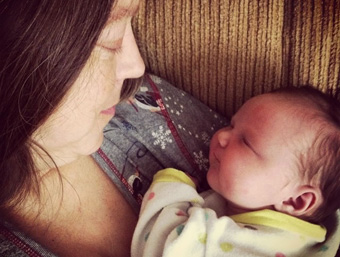 Women who are interested in having tubal ligation reversal surgery can often come across a ton of biased information when researching on-line about the success of tubal reversal.
Women who are interested in having tubal ligation reversal surgery can often come across a ton of biased information when researching on-line about the success of tubal reversal.
Often these women will make appointments with infertility specialist only to receive even more biased information against tubal ligation reversal.
Recently, we came across a website publication from an infertility specialist who published 9 facts on why women should not have tubal reversal.
Unfortunately many of these facts were heavily biased opinions against reversing tubes. The complete list of paraphrased ‘facts’ can be viewed in our first article: So Called “Facts” About Tubal Ligation Reversal Surgery!
This article deals with the eighth biased statement against reversal: the age of the reversal patient is important and being older than 35 impacts pregnancy rates.
Age And Infertility
Age has very little influence on male fertility; however, increasing age does have an impact on female fertility. These are well known facts.
Most women begin to experience a very slow decline in their ability to become pregnant after age 35 but the decline in fertility begins to occur dramatically after the age 40 and even more so after the age of 43.
Unfortunately this decline in a woman’s ability to become pregnant with increasing age is observed in both tubal ligation reversal and in-vitro fertilization (IVF).
Age influences both IVF and tubal reversal pregnancy success.
Facts About IVF
The IVF specialist’s statement explicitly suggests women really need to consider their age before having a tubal ligation reversal. The statement also subtly suggests if women are over 35 then they are making a bad decision if they choose to have tubal reversal surgery.
The truth is that age also significantly impacts pregnancy rates with IVF.
The following graph was adapted from the 2009 Assisted Reproductive Technology Report and it clearly demonstrates decreasing pregnancy success with increasing patient age
The above graph shows the ability to have successful IVF does decrease as the woman becomes older.
The IVF specialist’s statement is a heavily biased age fact against tubal reversal but the reality is the exact same age fact also apply to in-vitro fertilization.
The Truth About Reversing Tubes
Most tubal ligation patients and doctors are unaware of the facts about tubal ligation reversal. The most recent recommendations by a committee of leading infertility experts provides support for tubal reversal surgery.
The American Society For Reproductive Medicine (the leading group of infertility specialists in the United States) issued a committee opinion about tubal reversal surgery. The committee issued several conclusions and interested readers can find these conclusions in the summary section located on page 543 of their publication on the role of tubal surgery in the era of IVF.
The most relevant conclusions supporting tubal reversal surgery were:
Tubal anastomosis (tubal reversal) for reversal of tubal sterilization has a significantly higher cumulative pregnancy rate than IVF, and it is more cost efficient, even in women 40 years of age or older.
There is good evidence to recommend microsurgical anastomosis for tubal ligation reversal.
It would seem the committee of leading infertility specialist has issued several key statements and many IVF specialists seem to be largely unaware of the recommendations made by their own reproductive medical society.
Low Cost Tubal Reversal Facts
Tubal reversal can provide an excellent alternative to in-vitro. The pregnancy success of tubal ligation reversal at A Personal Choice can be seen on our website in the Tubal Reversal Success Rate section.
The cost for this outpatient surgery is $5900 at our reversal center. In comparison, the cost of a single cycle of IVF ranges from $9,000 to $12,000.
Age And Tubal Reversal
 The eighth statement made by the IVF doctor is indeed a fact. Age does impact the pregnancy rate after tubal reversal.
The eighth statement made by the IVF doctor is indeed a fact. Age does impact the pregnancy rate after tubal reversal.
Unfortunately this is a heavily biased fact against tubal reversal because age also impacts pregnancy rates with IVF.
Age and the ability to become pregnant are closely linked and this has always been a well known fact.
The next and last article in this series is What Happens If Tubal Reversal Does Not Work?










